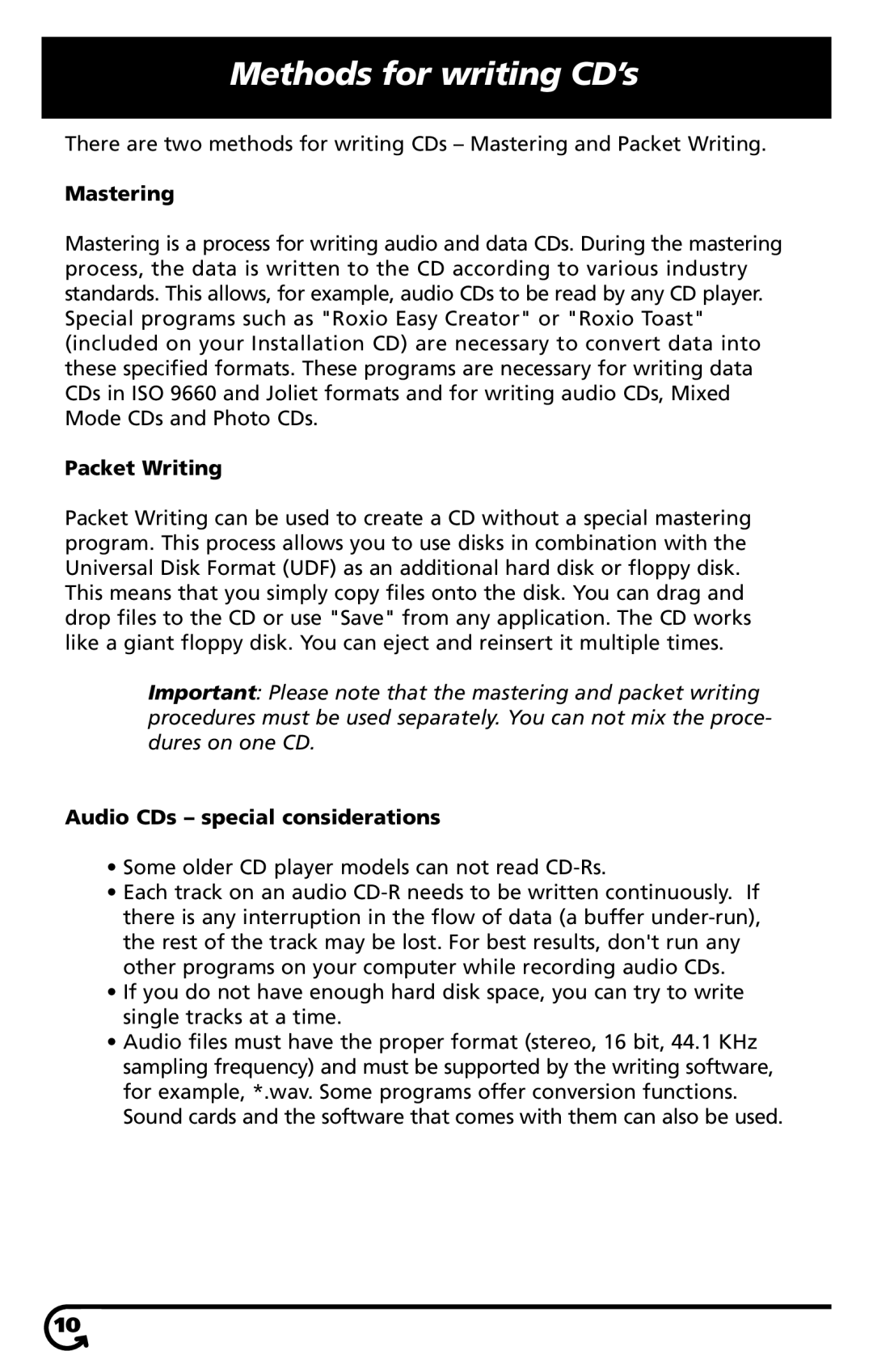
Methods for writing CD’s
There are two methods for writing CDs – Mastering and Packet Writing.
Mastering
Mastering is a process for writing audio and data CDs. During the mastering process, the data is written to the CD according to various industry standards. This allows, for example, audio CDs to be read by any CD player. Special programs such as "Roxio Easy Creator" or "Roxio Toast" (included on your Installation CD) are necessary to convert data into these specified formats. These programs are necessary for writing data CDs in ISO 9660 and Joliet formats and for writing audio CDs, Mixed Mode CDs and Photo CDs.
Packet Writing
Packet Writing can be used to create a CD without a special mastering program. This process allows you to use disks in combination with the Universal Disk Format (UDF) as an additional hard disk or floppy disk.
This means that you simply copy files onto the disk. You can drag and drop files to the CD or use "Save" from any application. The CD works like a giant floppy disk. You can eject and reinsert it multiple times.
Important: Please note that the mastering and packet writing procedures must be used separately. You can not mix the proce- dures on one CD.
Audio CDs – special considerations
•Some older CD player models can not read
•Each track on an audio
•If you do not have enough hard disk space, you can try to write single tracks at a time.
•Audio files must have the proper format (stereo, 16 bit, 44.1 KHz sampling frequency) and must be supported by the writing software, for example, *.wav. Some programs offer conversion functions. Sound cards and the software that comes with them can also be used.
10
